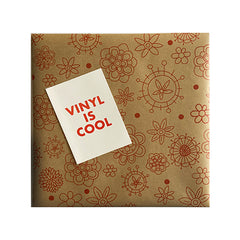

IGGY POP
American Caesar (180 Gram)
American Caesar is the eleventh studio album by American rock singer Iggy Pop, first released in September 1993.
Rolling Stone review
Iggy Pop's last album, Brick by Brick (1990), seemed as if it might be his swan song — one last blast of creative juice after a decade's worth of mostly uninspired dreck. Three years later, however, it looks as if the record was the beginning of a second wind. On American Caesar's 16 tracks, the protopunk rocker reclaims the slashing, psychedelic-tinged grunge rock he helped pioneer as a Stooge and takes an uncompromising confessional jaunt through loneliness, hatred, jealousy, paranoia and, ultimately, love.
In a trilogy near the beginning of Caesar, Pop spans the album's sonic emotional spectrum — admitting in the slow, tense "Jealousy" that the feeling is "boiling my blood"; repeatedly asking, "Why am I so afraid?" in the chaotic "Hate"; and in the fragile "It's Our Love" proclaiming, "Ain't nobody gonna break up our love." The self-doubt is prime Ig, but there's also a wisdom in the songs that one acquires only after living through the various stages of hell. In "Fuckin' Alone," he reflects on his present life, at 46, in New York City's East Village, where young rockers, rappers, artists and lovers continue to move in with visions of grandeur. "Everybody's in a dream of what they want and who they need," he observes, and at that moment Iggy gets to the quick of what he'd hinted at earlier on the album's Hollywood-style punk rocker, "Wild America."
The rest of the album reels through a range of prickly sensations, from the radio-friendly pop of "Beside You" (a duet with violinist Lisa Germano) to "Sickness," a rocker that deals jokingly with sexual dysfunction; "Mixin' the Colors," a good-hearted, slightly hokey song about the current MTV-contrived climate of multiculti peace and luv; the barn burner "Boogie Boy"; and an update of "Louie Louie," wherein Pop bemoans our complicated times: "Turn on the TV, it looks like a movie/Just makes me wanna sing 'Louie Louie.'"
What elevates American Caesar from merely a good album to a great one is that the songs are sequenced in a way that sharpens the record's dynamics — musically, stylistically and thematically. By all appearances, this is a concept album — but the good kind. Pop avoids self-consciousness by rendering his thoughts as a sort of diary of his life, circa now. Apparently, it's a much richer life than the one he led through the 1980s.
- Related products
- Recently viewed


